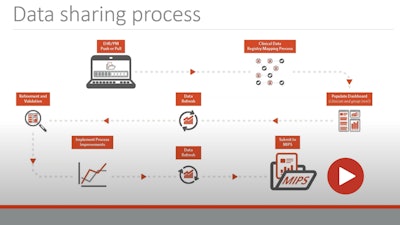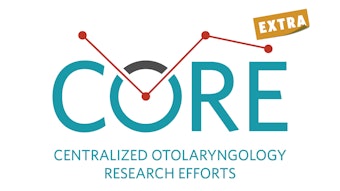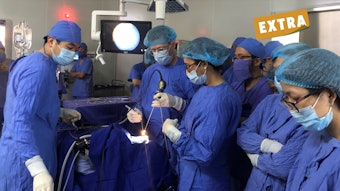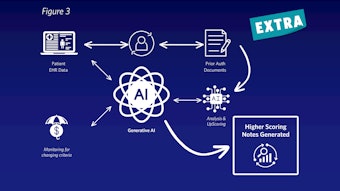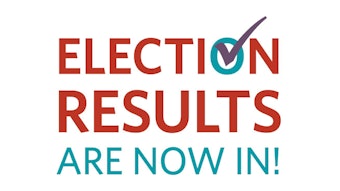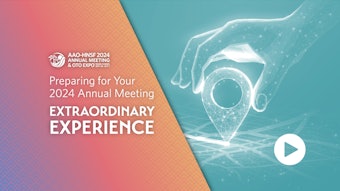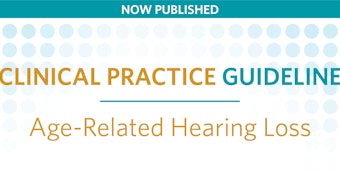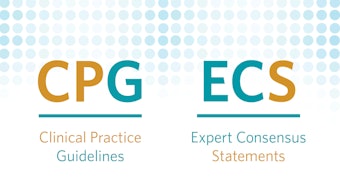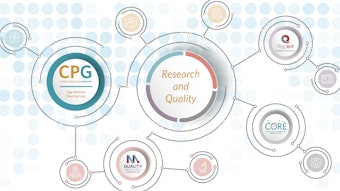Realized Potential of the Reg-ent Clinical Data Registry
The Reg-ent Clinical Data Registry has collected data over its eight years to extract valuable insights for research inquiries and advocacy efforts.

Recent Publications and Current Research Projects
In April 2024, the initial Reg-ent pilot study was completed and published to evaluate the Volume and Practice-Setting Shift of Laryngology Procedures During the COVID-19 Pandemic: A Reg-ENT Database Analysis. The Reg-ent Research Advisory Group (RRAG) has initiated the process of evaluating and prioritizing data requests for conducting research studies involving Reg-ent participants. Once proposals are approved, an updated list is published on the Reg-ent Research webpage. Reg-ent and the RRAG eagerly await your research proposals.
Be sure to bookmark the Reg-ent Projects and Publications page to stay up to date on the latest articles published by your peers!
Data Analysis and Visualization
Using the data studio, the Reg-ent team delves into data to extract valuable insights for research inquiries and advocacy efforts. Recently, the team’s focus has turned to comparing the frequency of functional endoscopic sinus surgery (FESS) and balloon sinuplasty procedures. Analysis of Reg-ent data has revealed that FESS procedures are still performed more frequently than balloon sinuplasty among participants.
Leveraging PowerBI, an interactive data visualization tool, we have developed dynamic dashboards that allow you to select patient features like age, race, ethnicity, and location (state and region) to explore whether these factors influence procedure usage. Contact the Reg-ent team to experience the capabilities of the dashboard and discover intriguing trends. We will showcase the expanding array of dashboards at the Reg-ent booth at the AAO-HNSF 2024 Annual Meeting & OTO EXPOSM, so be sure to stop by! We look forward to receiving your feedback and ideas at and after the meeting.
MIPS and MVPs: How Reg-ent Provides MIPS Support
Upon conducting a retrospective review of the QPP Experience Report, it has come to light that Reg-ent participants, on average, are receiving higher payment adjustments compared to their non-Reg-ent counterparts. Watch the video below to learn more.
In 2021, the highest incentive recorded was 2.34%, applicable to Medicare Part B claims. On average, Reg-ent participants received a 2.04% incentive, surpassing non-Reg-ent participants, earning 1.31%. Specifically for unweighted otolaryngology quality scores, Reg-ent participants average 84 points compared to 67 points for otolaryngologists not reporting through Reg-ent. In addition, this also trickled down to our most frequently occurring clinician specialties, where participants averaged 0.975% higher than non-participants. The animation above shows the performance achieved by Reg-ent participants for MIPS 2021 submission. The Reg-ent participants displayed a similar ascending trend in the MIPS 2022 submission, with Reg-ent participants receiving a 3.91% incentive, exceeding non-Reg-ent participants, who received a 2.31% incentive. Keep an eye out for future articles in the Bulletin to learn more about Reg-ent’s performance in 2023 MIPS submission.
In combination of quality care provided by the participant, the Reg-ent team meticulously examines MIPS policy alterations, aiming to not only meet but exceed performance thresholds by introducing measures with unrestricted point potential, crafting new measures, and applying policies to improve final scores. For the 2024 performance year, we have developed the Reg-ent Scoring Wizard, a tool designed to evaluate how prior performance rates would fare against the latest benchmarks. Many MIPS reporters have encountered diminishing point potential year after year. This tool facilitates the assessment of past performance and aids in determining whether the traditional MIPS or MVP reporting option would be more advantageous.
Quality Measures and Metrics Development
For the 2024 performance year, we introduced three quality measures available to report for the MIPS quality performance category. To meet measure requirements, Reg-ent is testing the data elements to submit the reliability and validity testing of the measure. These three measures can be submitted for 2024 and will receive a minimum of seven points, regardless of performance. This policy was recently introduced to promote adoption of new quality measures to create benchmarks.
The Reg-ent team is working to introduce an outcome measure for 2025 that would assess hemorrhage after tonsillectomies. Based on our preliminary data, we found that post-tonsillectomy hemorrhages were occurring at an average of 1.4% within the 21-day postoperative period, with 0.9% occurring within the first 48 hours. All Academy members are encouraged to submit the face validity survey by providing feedback on a brief survey. This initial feedback is critical to measure development and refinement prior to implementation.
Have Questions?
Do not hesitate to contact the Reg-ent team at reg-ent@entnet.org should you have any questions about Reg-ent or wish to sign up.
